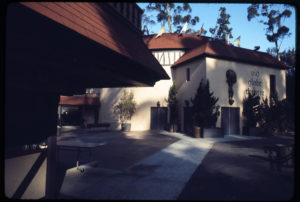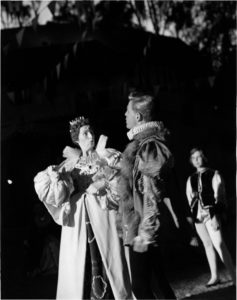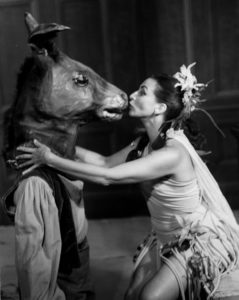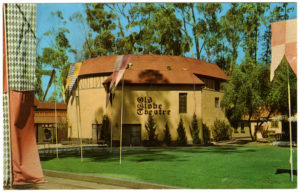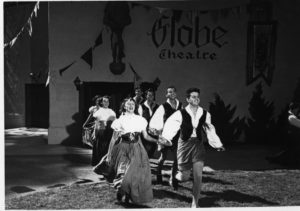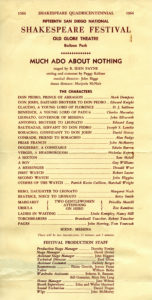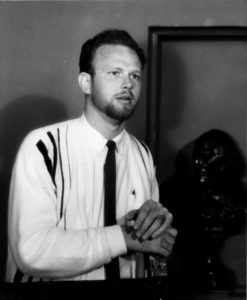
by Victoria Lucas
On Class and Murder
This review is late. The performance of "The Exception and the Rule" happened on May 7, 1965, produced by Bill Graham at the Gate Theater. However, I was too stunned to write earlier. Not only did the San Francisco Mime Troupe appear in one of Bertolt Brecht's Lehrstücke or dramatic exercises, but journalist and publisher Robert Scheer was featured after intermission. Also, as you can see from the program, Pauline Oliveros of the San Francisco Tape Music Center provided the music, so that was an attraction for me.
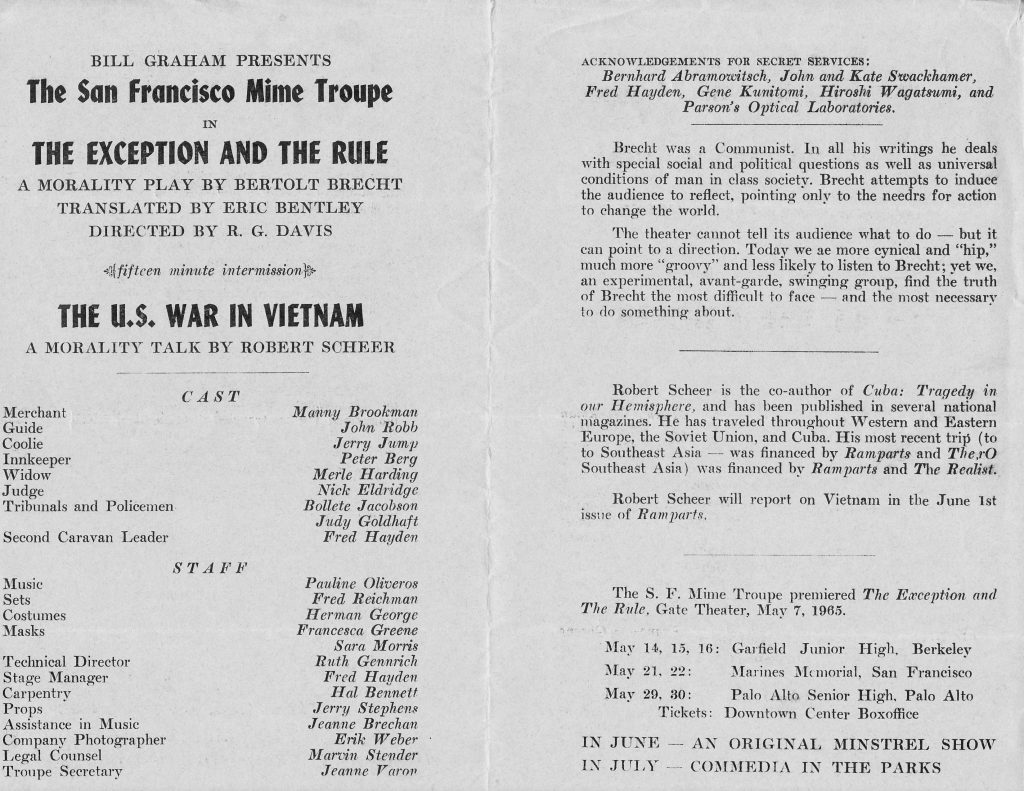
Program for "The Exception and the Rule"
In the play, the "exception" was a "coolie" who tried to give his master a drink of water. The rule was the master's fear of his abused underling that led him to see the flask as a "stone" and believe the coolie was trying to kill him. The results were the death of the coolie, shot by his master, the absolution by a judge of the master's actions (which were underlain by his need for "self defense"), and the protest of those who saw things otherwise.
No Exceptions to the Rule of White Masters
In the Mime Troupe's version, of course, the actors wore masks (in the tradition of the commedia del' arte in which they place themselves) and updated the 1929 work by Brecht, whom they outed as a "Communist." Whereas the results could be expected, the conclusions were disturbingly thought provoking. Here are some bits of dialog I wrote down: "The police fire out of pure fear." "One must go by the rule [the master's fear], not the exception [the coolie acts on fear of his master's dying of thirst while he was dehydrated]." "Dehumanized humanity" is a description of the coolie-master relationship that creates fear on both sides. "Sick men die but strong men fight" is the war cry of social Darwinism (not invented by Darwin). "He [the coolie] can't make us believe that he'll put up with it all," therefore he is "dangerous."
Scheer Opinion
After this disturbing performance with its comments on "class" and murder, Robert Scheer gave what the program called "a morality talk" on "The U.S. War in Vietnam." Scheer is now managing editor and editor-in-chief of Ramparts Magazine, a new left voice since 1962, produced here in San Francisco. He is also their Vietnam War correspondent.
Report from the Front
So how is the war going, you ask? Badly, my friend, badly, for both sides. It's like reporting on a journey that is uphill both ways. While that is a common trajectory in San Diego, which is all mesas and canyons, it's usually thought that if a war is going badly for one side it's going well for the other. Not so this war.
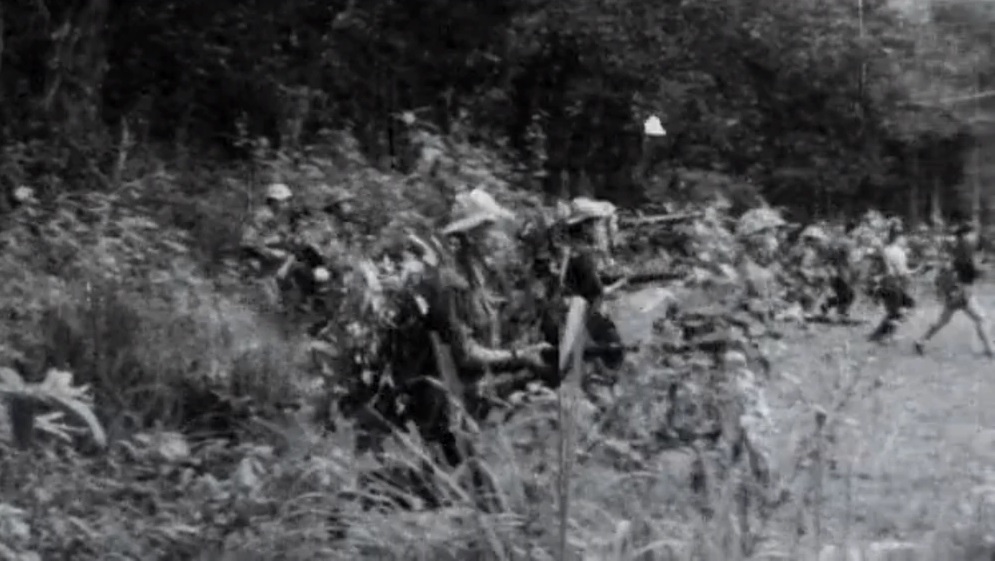

Violation of Geneva Accords
Scheer points out that the Geneva Accords of 1954 that ended the French war in Indochina mandated elections within 2 years to reunite Vietnam, with the present border meant to be temporary until elections could be held. In Vietnam, though, political battles have been fought on a literal battlefield rather than via the ballot box, and the US has been obstructing holding such elections precisely because the belief among US government officials is that Ho Chi Minh would win. Scheer compares and contrasts the situation of Negros in the South, whose voting rights have been interfered with, to the "n*gg*rs" of Southeast Asia, who are not allowed to vote at all in the present conflict.
Voting Rights and Human Rights
Deeper than that political comment, Scheer calls President Johnson's "voting rights" bill window dressing, and the lack of elections in Vietnam an avoidance of obstructing what he calls the "colonial ambitions" of the US in Asia. Scheer does not share the fear of Communist takeover as a form of political suppression of democracy, defining American "democracy" as suppressive in itself. According to him, in the US "white makes right," and in Vietnam "might makes right." He makes the point that as we slowly wake up to Negro rights in the US, we should also wake up to human rights in other parts of the world, particularly now in Vietnam, where both sides are clearly losing.
Suppressed Reporting
I've been listening to National Public Radio (NPR), reporting mainly by Christian Science Monitor correspondents, since NPR has little to no foreign-correspondent budget. They actually visit American troops and talk with the leaders, and their home editorial desks do not suppress their stories. So instead of publishing the US government press releases as the mainstream press does, the Monitor and NPR report what they see to the public. Scheer's commentary is in line with what I've been hearing. In March the US began systematic bombing of North Vietnam and the so-called Ho Chi Minh Trail–the supply route from North to South Vietnam. This began with the first landing of US Marines at Da Nang. Stories of atrocities persist but are not reported by the mainstream news.
As the World Turns
In short, I think I hear the noise of the world whizzing by, but I'm usually too scared or tired to lift my head, get up, and look over the ramparts of our middle-class consciousness. The Mime Troupe always provides such a view (while being raucous and funny), but what I saw this time was uncommonly scary. If you want to take a peek over the ramparts, buy the June edition of Scheer's magazine, at newsstands in the larger urban environments.
If it hasn't been suppressed.


![[June 4, 1965] Below the Ramparts](https://galacticjourney.org/wp-content/uploads/2020/06/650604mag-672x372.jpg)

![[July 24, 1964] Much Ado About Something (Time Travel, San Diego-style)](https://galacticjourney.org/wp-content/uploads/2019/07/pc-000-367-672x372.jpeg)
